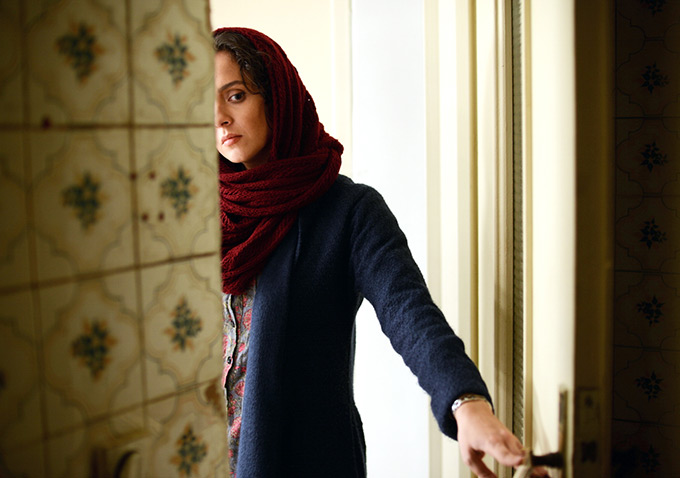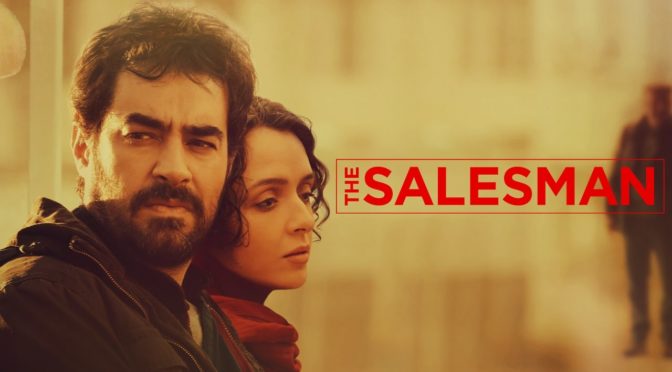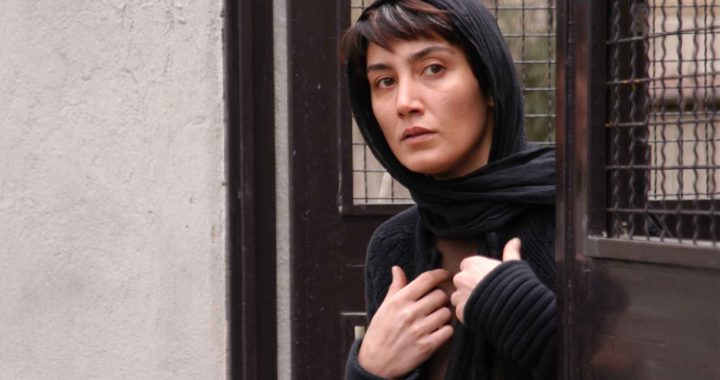Asghar Farhadi (A Separation) was absent from this year’s Oscars due his protest of the recent immigration ban, but his latest release was very much in the room. He won the Academy Award for Best Foreign Language Film for the second time with The Salesman. The film stars many of his regular collaborators with Shahab Hosseini (A Separation) as Emad and Taraneh Alidoosti (About Elly) as Rana, a married couple who are actors currently costarring in a production of Death of a Salesman. After their apartment building is damaged in a construction accident, they move to a recently vacated apartment recommended by another actor. Shortly after moving in, when Emad is out, Rana is assaulted by an intruder while taking a shower. The rest of the film deals with the aftermath of this attack as the couple decides what to do next.
The Salesman brings Farhadi into noticeably darker material. While his films are well known for being morally complicated, his previous works did not feature this kind of deliberate criminality. In addition to a series of well-intentioned but disastrous errors, this movie focuses on crime, punishment, and society. Instead of immediately calling the police, they take Rana to the hospital. The question then becomes: is it worth it to go to the police? Rana would have to relive the trauma she faced and potentially suffer public embarrassment. The desire to reduce the pain she has to go through directly conflicts with what is best for catching the criminal.

The issue of justice is even more murky. Emad, using personal items left by the attacker, decides he will find him on his own. But to what end? How will he know who actually committed the crime and even if he is able to find the culprit, what will he do? Take him to the authorities or handle the situation on his own? What punishment will fit the crime and would any punishment actually help Rana? The movie confronts these issues as we see the couple’s opposing ideas. Emad wants retribution for Rana but Rana wants to move on and put this behind her more than anything else. As with all Farhadi films, neither character is favored and each position is shown to be flawed. There are no simple choices here, only alternative trade-offs.
Farhadi’s choice to build his film around the famous play has mixed results. Death of a Salesman is a clear classic, but the parallels the director tries to draw between Emad and Rana and Willy and Linda are too forced and too weak to justify the play’s emphasis. Willy’s self-destruction in the pursuit of money isn’t similar enough to Emad’s need for justice, nor is it different enough to create an insightful comparison. The play itself is also shown far more than it needed to be. Perhaps this was done to introduce some variety into the film’s settings. The stage is well shot and expertly lit, but the additional location doesn’t provide much value. Most of Farhadi’s films take place in one or two middle class apartments and it has never been an issue in the past. His morally ambiguous plotting remains enticing, but Farhadi’s decision to rope in an unnecessary element and give it a substantial amount of screen time causes his latest feature to fall short of its otherwise high potential.

4/5 stars.



